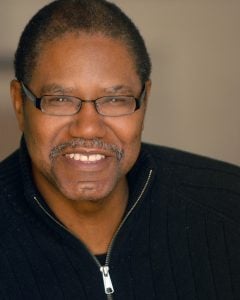Donnie L. Betts
Actor
donnie l. betts is a founding member of two theatre companies in Denver: City Stage Ensemble and Denver Black Arts Company. He attended Yale School of Drama. His theatre performance credits include The Gospel at Colonus on Broadway, The Warrior Ant at Brooklyn Academy of Music (BAM), as well as many regional performances including Spunk, Driving Miss Daisy, Home, Ma Rainey’s Black Bottom, Joe Turner’s Come and Gone. Theatre directing credits include: House With No Walls, Citizen, and Black. for Curious; Proof, Emperor Jones and Zora in Denver. donnie directed Rene Marie’s Slut Energy Theory in Denver, Dallas and at New York’s Cherry Lane Theatre. He also directed Crumbs From The Table of Joy, K2, Color Purple, Who Killed Jigaboo Jones, I Go On Singing the Life of Paul Robeson, Black Elk Speaks , and Porgy and Bess. His film performance credits include Switchback and Honeydripper both directed by John Sayles. His production company, No Credits Productions, produces the award-winning radio drama series Destination Freedom, Black Radio Days, and documentary films including Music is My Life, Politics My Mistress: The Story of Oscar Brown Jr. (screened at more than 25 film festivals worldwide, won eleven “Best Documentary”, Audience’s Choice Awards and aired on PBS plus other stations nationwide). His film, Dearfield: The Road Less Traveled a docudrama about the all-black town in northern Colorado was nominated for an Emmy. He won an Emmy for My Voice, a film on spoken word artist/actor Jeff Campbell. His films Lincoln Hills and Dr. Justina Ford currently air on RMPBS.org. donnie is a skilled facilitator of conversations about race and inclusion in America having facilitated or created programs for History Colorado, area high schools and Curious. He produces The Why: Women of Power TV series. betts is currently in production on the film Beyond Chaos: Is America Possible, a look at America’s democracy told through the lens of an intergenerational America. donnie would like to thank John McCallum, Jo Bunton Keel, Henry Lowenstein, and Dan Heister for opening the doors of directing to him.
